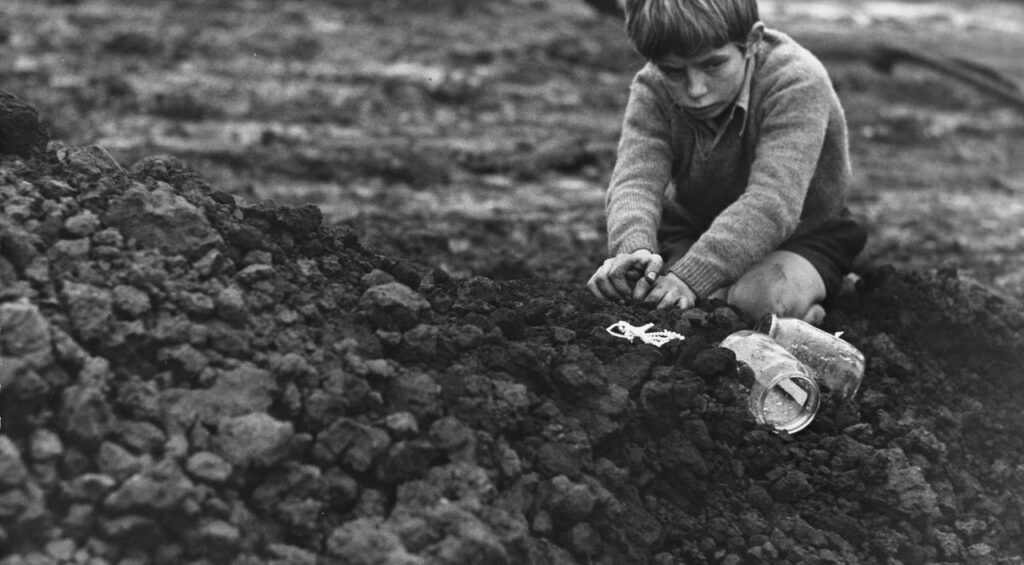
There’s something about 16mm high contrast black and white film stock that is at once both tactile and dream-like. One can see this duality exploited obviously in David Lynch’s Eraserhead (1977) and in Shinya Tsukamoto’s Tetsuo: The Iron Man (1989); but it’s also an important part of Bill Douglas’ My Childhood (1972). Douglas leans so heavily into the documentary overtones that this film stock provides in its grain that the film itself comes back full circle to the dream-like. My Childhood is a harsh, brutal film that obsesses over “reality” to the point that it distorts it with ink black shadows, flickering whites and a layer of dirt that permeates every surface.
My Childhood, originally titles Jamie, is the first film in a trilogy of semi-autobiographical films Douglas made in the seventies. Like John Cassavetes, Bill Douglas was a true independent whose films function as extensions of the artist. Douglas’ strategies ground his film on a more spiritual plane than Cassavetes’ films, exploring subtly the ways that the medium itself distorts the reality it photographs. There’s also a social and political agenda to Douglas’ films that only ever really exists in Cassavetes’ post-Shadows (1959) filmography as a subtext.
My Childhood is a poetic film with a political mind, mirroring the works of Maxim Gorky whom Douglas admittedly admired and cited as an influence. Douglas’ nightmare vision of Scottish poverty articulates the details of that social predicament so minutely that even a slight gesture can be heartbreaking. The realities of starvation, depravation, abuse, and isolation flood the narrative of the film even as, on a visual level, the film becomes unreal.
This is the paradox of memory which itself defines the central aesthetic concerns of Bill Douglas’ trilogy. One can never forget a trauma on its most base level even if different specific details change in the mind’s eye over time. The act of remembering is the act of viewing, of be a spectator of My Childhood. Terence Davies clearly had Bill Douglas’ films in mind when he made the far more expressionistic Distant Voice, Still Lives (1988) which deals with similar themes and takes a similar approach to memory. Film for Bill Douglas was the act of remembering transformed into a physical, tangible process.
